1. The 13th National Party Congress emphasized in the Congress theme, continuing to innovate and create, promoting the strength of great national unity, arousing the aspiration to develop a prosperous and happy country so that the nation can be strong and eternal. The efforts of the entire Party, people and army are aimed at the goal that by 2045, in the middle of the 21st century, Vietnam must become a developed country with high income.
To innovate and achieve the above general goal, we must first thoroughly overcome dogmatism, from awareness to action, from the leadership and management staff at all levels, sectors, at the central, local and grassroots levels to the communities in society, to each individual. Dogmatism is a disease that has existed for a long time, persistently, deeply rooted in thinking, in behavior, in bad habits in thinking, penetrating into daily lifestyle, into relationships: with oneself, with others, with work and organizational apparatus. Along with other diseases, dogmatism causes negative consequences, complex social consequences, and is truly a social obstacle that prevents us from developing to a modern level.
Dogmatism is a disease of thinking, consciousness, and perception. It is a rigid, mechanical way of thinking, following existing formulas, not adapting to rapid changes in real life, and escaping from specific historical conditions. Due to dogmatic perception, based on static categories, actions and behaviors are often rigid, dependent on available conclusions in books, considering it as an absolute, unchanging thing. Dogmatic people cannot be flexible, hinder creative exploration, do not adapt to the new, are afraid of innovation, and even try to cling to the old, even though it has been outdated, long surpassed by real life, causing stagnation, conservatism, and resistance to the new and innovation, even unconsciously.
Dogmatism often goes hand in hand with simplicity, formalism, pragmatism, and metaphysical thinking.
Dogmas all have cognitive origins in the subjective idealist worldview , voluntarism and metaphysical thinking methods. The cognitive manifestation is the separation of theory from practice, falling into “bookishness” which is essentially a weakness in theory but a disregard (“despise” – Ho Chi Minh’s term) of theory, often absolutizing experience and being bound by empiricism. In the relationship between the universal and the particular, people with dogmaticism often absolutize the universal and deny the particular. On the contrary, they fall into revisionism as Ho Chi Minh explained.
In short, dogmatism is inevitably subjective, one-sided and metaphysical. It is alien to dialectical thinking, materialistic dialectics which is the science of development, dealing dialectically, objectively, scientifically between the objective and the subjective. Manifested in practice, especially through attitudes and behavior, dogmatic people, especially dogmatists to the extreme, often emotionally oppose those who have independent and creative thinking, or make assumptions, label positions and viewpoints, or "talk big", "speak big", from differences in perception, which they are unable to convince others in terms of theory and science, then immediately turn to comments, assessments, and criticisms of positions and viewpoints, which are very harmful to both scientific perception and political action.
Dogmatic people often have the habit of “politicizing” all issues, including science , being allergic to scientific criticism, or being prejudiced against those and things that are different from themselves. Such a way of thinking and behaving is outside of scientific truth, outside of democracy, and alien to culture, because “culture is knowing how to listen”, because “culture is unity in diversity, unity includes differences”, “culture in its essence is tolerance”, (accepting, acknowledging what is different from oneself, not using oneself as a standard to impose on others…)
In terms of democratic culture, dogmatic people often act strangely to democracy (not familiar with dialogue, discussion, debate, and criticism) to seek the truth together.
In terms of morality, dogmatists are prone to narrow-mindedness and jealousy, especially when they have power and authority. If they lose their composure and clarity, lack objectivity, respect for science and practice, they are likely to make mistakes in suppressing ideas, especially with creative intellectuals. In terms of the Party's leadership of intellectuals, artists and writers, leaders must understand intellectuals, especially scientific and artistic intellectuals, because they have strong personalities, a great need for freedom and creativity, and value the affirmation of their ego - independent self. Therefore, when democracy is violated, intellectuals are very vulnerable in spirit and spiritual values. Leading intellectuals without democracy, without enough power to convince them about academics, ideology and ethics, creates barriers in itself, lacks empathy, cooperation and mutual trust, science lacks the motivation to develop and politics also does not receive the impulse from science to "scientify" itself.
Simple dogmatism often homogenizes many issues, events, and phenomena that are only unified (including differences) but not identical.
In life, resolving the relationship between science and politics, between truth and authority (political power), between scientists and politicians, “scientists” and “politicians” is not simple. This complex relationship will be resolved by culture, by the subtle and tolerant cultural behavior of leaders, of whom Marx, Engels, Lenin, and Ho Chi Minh are exemplary models. They are thinkers and scholars, fluent in materialist viewpoints and dialectical methods, creative rather than dogmatic, flexible rather than rigid, knowing how to listen, how to dialogue, and how to persuade. Ho Chi Minh is also a master of influencing, winning people’s hearts, valuing talents, and treating talented people in a dialectical rather than metaphysical way, in a sincere and trustworthy way.
One of the harmful effects of dogmatism in dogmatic people is that, even if they are not conscious or intentional, they fall into the suppression of democracy and freedom of thought, risking becoming authoritarian, despotic, undemocratic and damaging the purity and clarity of the moral and ethical environment. Its consequence is creating loopholes, areas that foster formal democracy, formal solidarity, "pseudo-morality" and "pseudo-science", "pseudo-politics", "pseudo-revolution". Opportunists and opportunists will take full advantage of this situation to carry out their intentions and actions that are unclear and unjust for personal gain and profit.
It is enough to see how complicated the problem is and how to find a synchronous solution system to completely eliminate dogmatism, from awareness to action among party members and the people.

The 13th National Party Congress emphasized in the Congress theme, continuing to innovate and create, promoting the strength of great national unity, arousing the aspiration to develop a prosperous and happy country for the nation to be strong and eternal.
2. Specifically and directly, to combat dogmatism, we must pay great attention to educating scientific thinking, theoretical thinking, imbuing it with the practice of dialectical materialism, organically unifying it with the dialectical materialist viewpoint. This is the fundamental and leading solution. In other words, we must overcome the idealistic worldview (both subjective and objective) along with metaphysics. We must cultivate the capacity for philosophical thinking - here the core is Marxist-Leninist philosophy while equipping a system of knowledge about the history of philosophical thought. Philosophical knowledge and ideas in the history of philosophy must be taught and learned in the spirit and method of science as the most serious basic sciences. There is a contradiction between streamlining the curriculum, narrowing or integrating types of knowledge with the tendency to simplify the knowledge that learners must acquire. We must overcome the situation where learners "seem to know everything" but in reality do not know thoroughly or thoroughly any knowledge. Superficial knowledge is the ally of dogma. It is necessary to make learners, especially specialized students, aware of and have the need to cultivate philosophical knowledge, not only existing in principles as accepted conclusions but also knowing and understanding "history" to grasp the essence of "logic". It is necessary to overcome the prejudice of many of us about "academic knowledge", which leads to superficial understanding, even trivializing applied practice, separating practice from theory. Without understanding theory, without valuing theory, it is impossible to approach practice scientifically, not describing the surface of practice but the main thing is to use theory to illuminate practice, to "theoretize" it, not "empiricize" it.
Dogmatism will inevitably be sectarian, seeing only the "one" - the only thing without seeing the diversity of knowledge and science, which reflects the diversity of generalized practice, theorizing practical experience to overcome empiricism, liberating oneself from sectarianism and dogmatism.
Ho Chi Minh absorbed the dialectical thought of the classics and practiced that dialectic excellently. He not only became enlightened and believed in Marxism-Leninism, but he was creatively loyal by creatively developing that ideology and doctrine. For Ho Chi Minh, Marxism-Leninism was the most important and decisive in his ideology, but he did not consider it the only one. He absorbed many other sources of knowledge from Eastern and Western cultures, thanks to which he understood Marxism-Leninism more deeply, saw in it both the spirit and the method, understood the essence to practice creatively, skillfully combined science with politics and ethics, and in summary, that is culture. That is why we must learn and follow him in both viewpoint and method. To fight against sectarian dogma, experience and metaphysics, we need to remember and practice his instructions through typical arguments:
+ “Unity between theory and practice is the essence and supreme principle of Marxism-Leninism”.
+ “Practice makes knowledge.”
Understanding advances reasoning
"Leadership Theory and Practice".
+ Studying, learning and applying Marxism-Leninism does not mean memorizing every word like a parrot, but must grasp the essence, absorb the spirit and methods of Marxism-Leninism to independently and creatively solve problems, and to deal with people and work correctly.
+ Marxism-Leninism is not only science but also morality. Reading hundreds of thousands of Marxist-Leninist books but living together without love and meaning, how can it be called understanding Marxism-Leninism?
+ The West learns everything good. The East learns everything good. Learn to enrich yourself. Learn to know, to act correctly, to be creative. Selectively absorb with a critical spirit, not to imitate, not to copy mechanically... We and the Soviet Union are very different... We can take a different path from the Soviet Union to move towards socialism... We must see that the biggest characteristic of our country is to skip the capitalist regime, gradually transitioning to socialism...
Those are His precious instructions, we need to understand them correctly and do them correctly.
Second, we must understand correctly the “bookish disease” and properly handle the disease that creates this dogma and overcome it. The bookish disease as we often call it manifests as complete dependence on books, strictly following dogmas, beliefs, creating blindness, the inability to criticize, absorb anything, filter and abandon anything (what is wrong, what is outdated) and must treat books and knowledge correctly, not falling into speculation, not “despising theory”, not “empty theory”. The bookish disease is actually the disease of those who “read books but do not understand them”, becoming bookworms who read too few books, so their knowledge is limited, superficial, and they do not have the ability to analyze, criticize and apply them correctly. To fight against bookishness, which is essentially fighting against dogma, one must not mechanically criticize books, despise books, or throw them away. On the contrary, one must cherish books, read more books, and accumulate more knowledge. “Without books, there is no knowledge. Without knowledge, there is no communism.” “Without enriching one’s knowledge with all the treasures of human knowledge, communism will only remain a wish.”
The important thing is to read books, absorb knowledge from books using scientific methods, have the right purpose when reading books, avoid formalism, showing off, "reading a few books, knowing a few things to brag, to fool the world". Do not let books obscure life, fall into subjectivity, speculation, and escape from reality.
Third, one must have a democratic spirit, be modest, truly inquisitive, practice and cultivate regularly both knowledge (academics, expertise, techniques, profession), revolutionary sentiment and ethics, foster scientific belief, practical skills and communication culture. According to Ho Chi Minh's instructions, one must strive to "criticize and correct" the subjectivism, narrow-mindedness and bragging mentioned in "Reforming the way of working". The habit of "contempt for theory" and "contempt for mass mobilization" that party cadres and members have is caused by this disease, and one must strive to correct it. Knowing how to listen, discuss, debate, distinguish right from wrong, true from false, bad from good, knowing how to learn from school books to life, learning from the people, asking the people, learning while doing, linking theory with practice, upholding honesty in self-criticism and criticism, self-study, lifelong self-training... These are the qualities needed by enlightened people, intellectual communists, different from communists who are enthusiastic but lack understanding, unable to meet the increasingly high demands of new situations and tasks. Lenin once warned that "enthusiasm without understanding can eventually lead to unconscious destruction". Lenin also demanded learning "Study more, study forever" and Ho Chi Minh emphasized "the path of life is a ladder without a last step, learning is a book without a last page".
Fourth, continue to innovate, nurture the spirit of dedication, to realize the aspiration for development with will and creative action that is truly effective, we must continue to promote and attach importance to "innovative thinking". We must innovate leadership, management and governance thinking to suit the requirements of the era of information explosion, society is strongly transforming into "digital society", "digital economy", "e-government", "artificial intelligence", "flat world" and "global citizen" ... with many new things, affecting psychology, consciousness, lifestyle, choosing new values ... The modern society we are living in, striving for, both requires us to fundamentally overcome dogmatic, stagnant, conservative thinking ... and at the same time creates the premise, conditions and environment to eliminate dogma, shaping the level, method and style of modern thinking. When Vietnam has completed its mission of industrialization and modernization, becoming a modern industrial country, that social environment, that modern material and technical core - technology will clear away the land that gave birth to and nurtured dogma, experience, metaphysics, and sectarianism as mentioned.
Fifth, it is necessary to thoroughly, comprehensively and synchronously innovate all areas of work and activities of the Propaganda, Education, Culture, Information and Communications sector.
This is a field that requires profound revolutionary changes, of the magnitude of a revolution in the field of consciousness and spirit. From the concept to the content, the method of education - training - propaganda to the style, to the team of cadres, training of experts, creating a broad social effect, with strong inspiration for the entire Party and the entire people. Ho Chi Minh is a master in this field that we need to learn from and follow. We cannot forget Lenin's stern warning and criticism of this work. He spoke of the harm of dogma, the distortion that discredits Marxism and must be paid for. In causing this crime, "licensed Marxists" must bear responsibility and make every effort to correct it./.
Prof. Dr. Hoang Chi Bao
Senior expert, former member of the Central Theoretical Council
Source




















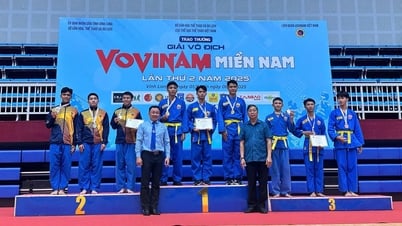















































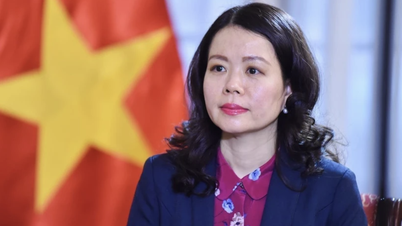


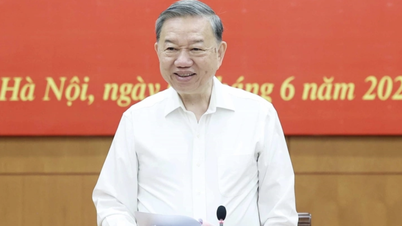














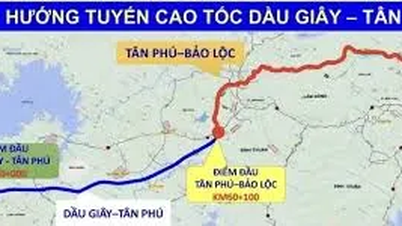
















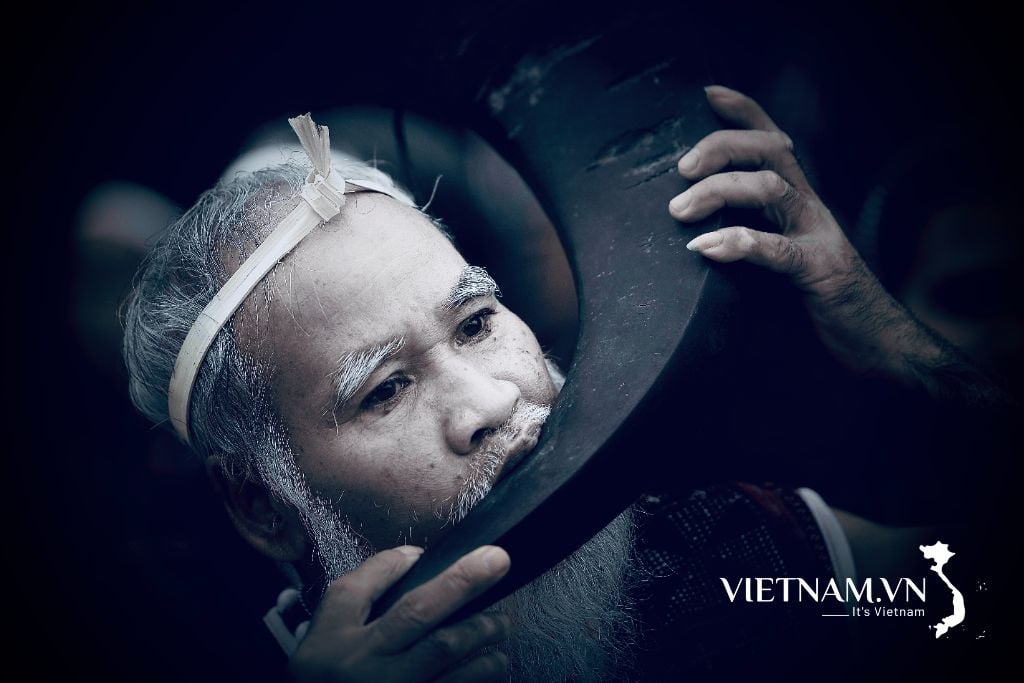
Comment (0)